第38章 CHAPTER X.(1)
And now behold me at sea, on my voyage to Riga. I had eaten heartily before I went on board; a storm came on; I worked half the night, to aid the crew, but at length became sea-sick, and went to lie down. Scarcely had I closed my eyes before the master came with the joyful tidings, as he thought, that we were running for the port of Pillau. Far from pleasing, this, to me, was dreadful intelligence. I ran on deck, saw the harbour right before me, and a pilot coming off. The sea must now be either kept in a storm, or Ifall into the hands of the Prussians; for I was known to the whole garrison of Pillau.
I desired the captain to tack about and keep the sea, but he would not listen to me. Perceiving this, I flew to my cabin, snatched my pistols, returned, seized the helm, and threatened the captain with instant death if he did not obey. My Russians began to murmur; they were averse to encountering the dangers of the storm, but luckily they were still more averse to meet my anger, overawed, as they were, by my pistols, and my two servants, who stood by me faithfully.
Half an hour after, the storm began to subside, and we fortunately arrived the next day in the harbour of Riga. The captain, however, could not be appeased, but accused me before the old and honourable Marshal Lacy, then governor of Riga. I was obliged to appear, and reply to the charge by relating the truth. The governor answered, my obstinacy might have occasioned the death of a hundred and sixty persons; I, smiling, retorted, "I have brought them all safe to port, please your Excellency; and, for my part, my fate would have been much more merciful by falling into the hands of my God than into the hands of my enemies. My danger was so great that I forgot the danger of others; besides, sir, I knew my comrades were soldiers, and feared death as little as I do." My answer pleased the fine grey-headed general, and he gave me a recommendation to the chancellor Bestuchef at Moscow.
General Lieuwen had marched from Moravia, for Russia, with the army, and was then at Riga. I went to pay him my respects; he kindly received me, and took me to one of his seats, named Annaburg, four miles from Riga. Here I remained some days, and he gave me every recommendation to Moscow, where the court then was. It was intended I should endeavour to obtain a company in the regiment of cuirassiers, the captains of which then ranked as majors, and he advised me to throw up my commission in the Siberian regiment of Tobolski dragoons. Peace be to the names and the memory of this worthy man! May God reward this benevolence! From Riga I departed, in company with M. Oettinger, lieutenant-colonel of engineers, and Lieutenant Weismann, for Moscow. This is the same Weismann who rendered so many important services to Russia, during the last war with the Turks.
On my arrival, after delivering in my letters of recommendation, Iwas particularly well received by Count Bestuchef. Oettinger, whose friendship I had gained, was exceedingly intimate with the chancellor, and my interest was thereby promoted.
I had not been long at Moscow before I met Count Hamilton, my former friend during my abode at Vienna. He was a captain of cavalry, in the regiment of General Bernes, who had been sent as imperial ambassador to Russia.
Bernes had been ambassador at Berlin in 1743, where he had consequently known me during the height of my favour at the court of Frederic. Hamilton presented me to him, and I had the good fortune so far to gain his friendship, that, after a few visits, he endeavoured to detach me from the Russian service, offering me the strongest recommendations to Vienna, and a company in his own regiment. My cousin's misfortunes, however, had left too deep an impression on my mind to follow his advice. The Indies would then have been preferred by me to Austria.
Bernes invited me to dine with him in company with his bosom friend, Lord Hyndford, the English ambassador. How great was the pleasure Ithat day received! This eminent statesman had known me at Berlin, and was present when Frederic had honoured me with saying, C'est un matador de ma jeunesse. He was well read in men, conceived a good opinion of my abilities, and became a friend and father to me. He seated me by his side at table, and asked me, "Why came you here, Trenck?" "In search of bread and honour, my lord," answered I, "having unmeritedly lost them both in my own country." He further inquired the state of my finances; I told him my whole store might be some thirty ducats.